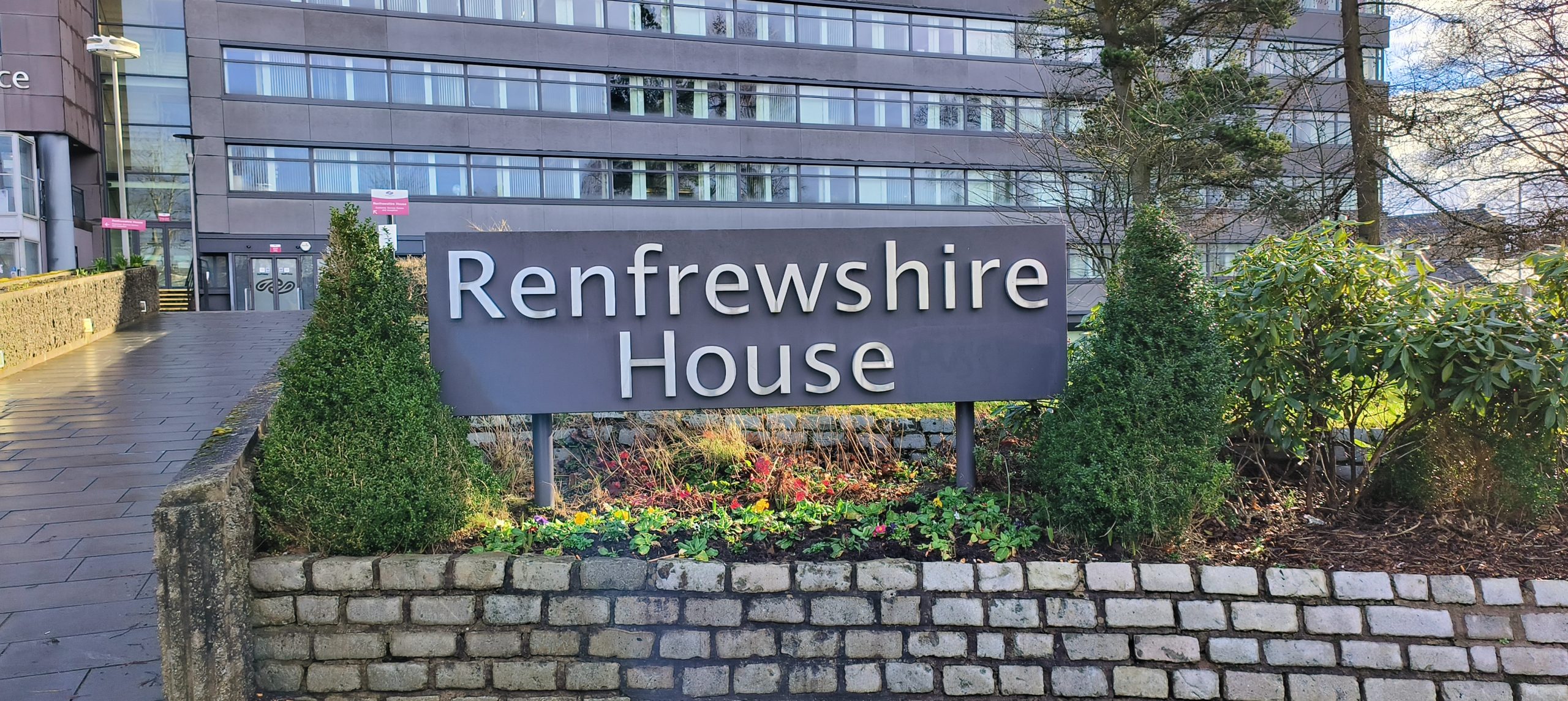Environmentally conscious individuals are being asked to volunteer for a new community taskforce to help protect Renfrewshire’s rich riverbank habitats.
Renfrewshire Council’s new Environmental Community Taskforce will see volunteers work alongside the Council’s Biodiversity Officers as part of the Restoring Renfrewshire’s Rivers project, to help tackle the damaging effects of non-native plants on riverbanks.
The Council secured £350k funding from the Scottish Government’s Nature Restoration Fund to deliver the Restoring Renfrewshire’s Rivers project.
The project is focused on removing five species: Japanese Knotweed, Giant Hogweed, Rhododendron, Himalayan Balsam and American Skunk Cabbage from riverbank locations across Renfrewshire. The planned sites are Calder Burn, Dargavel Burn, Locher Water, Old Patrick Water and Sergeant Law Burn.
The five identified species grow alongside our watercourses, producing an abundance of seeds which spread by wind and water. They are large and fast-growing and can easily dominate the riverbanks, replacing species-rich, native plants. These non-native plants die back each winter, exposing the riverbank soil and increasing the flood risk, as well as releasing carbon into the atmosphere.
Restoring these riverbanks will help ensure Renfrewshire has well-connected, nature rich habitats for wildlife and pollinating insects in the future.
Those interested in volunteering will participate in a specialist certified training course, to ensure they have the knowledge, skills and qualifications to help protect, identify and properly remove the invasive non-native plants. Volunteers will then be provided with the appropriate PPE and tools before visiting the selected sites with Council officers to carry out the necessary work.
Convener of Renfrewshire Council’s Infrastructure, Land and Environment Board, Councillor Michelle Campbell said: “We want to empower local people to play an active role in improving their local environment and the Restoring Renfrewshire’s Rivers project offers the perfect chance for local people to get involved, while offering opportunities for green upskilling.
“This project aligns with our wider ambitions for Net Zero by helping to reduce carbon emissions, reduce soil erosion and make our riverbanks more resilient against flooding. It will also help to protect, restore and enhance existing plant and wildlife habitats.
“I know how passionate local people are about protecting their local environment. I’d encourage anyone who is interested to get in touch and get involved and collectively we can make a real positive difference to these areas.”
Volunteers are being sought to cover the whole growing season of April – October. There will be multiple opportunities for interested individuals to undergo training throughout this period. Volunteer participation in the project is flexible and is designed to work around people’s wider commitments so volunteers will be able to join in when they are able.
Those interested in volunteering to participate in the project should contact the team via the dedicated mailbox RestoringRenfrewshiresRivers@renfrewshire.gov.uk, and by joining the Team Up to Clean Up Facebook Group.
Those looking for more information on the project should visit the Renfrewshire Council website www.renfrewshire.gov.uk and search for ‘Restoring Renfrewshire’s Rivers.’


